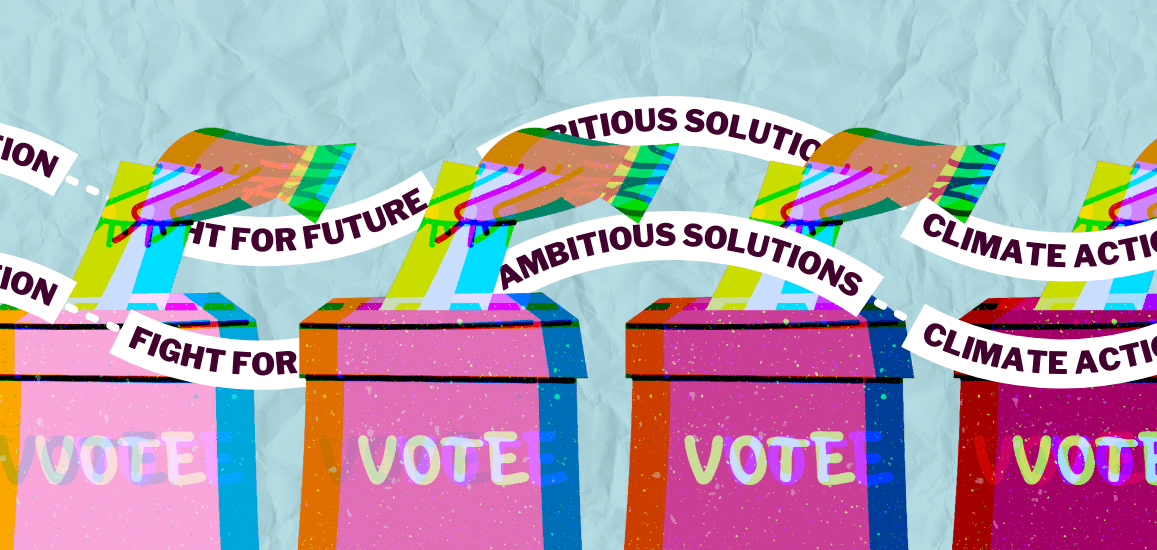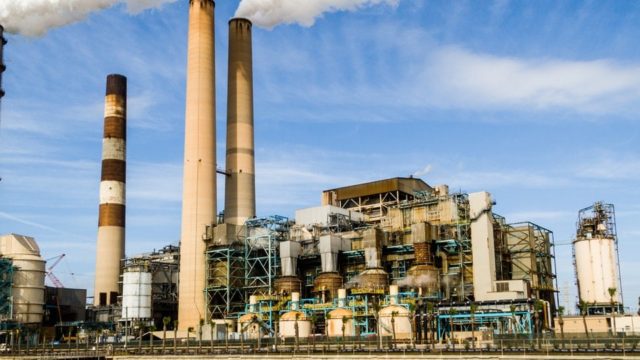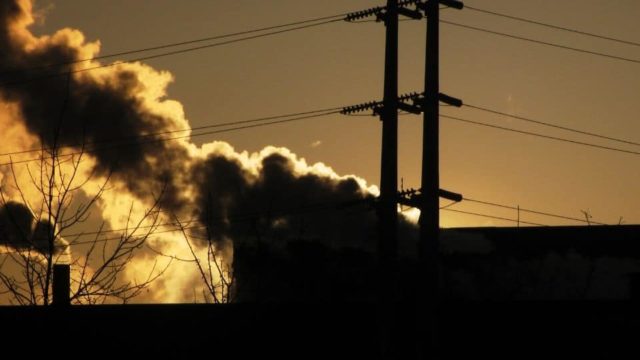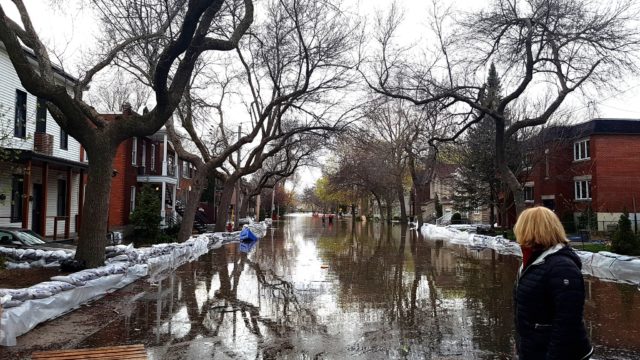In advance of the Ontario provincial election on June 2, Ecojustice is calling on all candidates to adopt and support policies that will fight climate change, tackle dangerous pollution and stop the loss of biodiversity.
Ontario, like so many places across Canada, is at risk from the dangers of the climate emergency, the widespread impact of toxic pollution, and the loss of species and biodiversity.
To face down these challenges, political leaders of all stripes in Ontario need to take action and support policies that will build a safe, sustainable future for everyone.
Ecojustice is a registered charity, which means that while we cannot advocate for or against any one political party or candidate, we can advocate strongly for better environmental laws and policies that will benefit everyone in Ontario.
Our team has shared with all major parties policy proposals we believe will deliver solutions to the environmental crises Ontario faces.
You can read the full briefing note here¹, or scroll down for an abbreviated look at Ecojustice’s four platform recommendations:
Adopt a climate accountability framework
The Intergovernmental Panel on Climate Change²(IPCC) has delivered a stark warning that governments around the world are running out of time to avert a climate catastrophe.
Canada ranks dead last among the G7 nations on climate progress, and each province has a crucial role to play in combating climate change and reducing emissions.
Ontario was once a climate leader but recent rollbacks of its climate legislation was a serious setback.
In order to tackle climate change and reduce emissions, Ontario must pass a climate accountability law that holds the government accountable for achieving climate goals and reaching net-zero emissions by 2050.
This legislation should:
- Set legally-binding targets to put Ontario on a pathway to a safe climate;
- Mandate transparent and detailed government plans to meet those targets;
- Require government to obtain and respond to independent expert advice on those targets and the plans; and
- Require regular and open reporting on progress towards achieving those targets.
Safeguard Ontario’s biodiversity and forests
Ontario is home to a wealth of terrestrial and aquatic ecosystems, including 71 million hectares of forest that provide habitat for endangered species, store carbon, and protect watersheds. These ecosystems support Ontarians’ livelihoods and keep our communities healthy.
However, Ontario’s rich biodiversity is under serious threat from loopholes that allow industry to cut down forests and further endanger the many species that depend on that habitat for survival.
A drastic overhaul of Ontario’s Endangered Species Act (ESA) and Environmental Assessment Act (EAA) gutted protections for the province’s most vulnerable plants and animals and significant forests.
Ontario’s Auditor General found that the province is falling behind other jurisdictions because it has no long-term plan for protecting species at risk, nor any performance measurement framework to evaluate whether existing programs and policies are helping species.
The next Ontario government must:
- Implement all recommendations in the Auditor General of Ontario’s report on Protecting and Recovering Species at Risk;
- Restore all lost protections under the Endangered Species Act (ESA), including repealing the “pay to slay” exemption;
- Ensure all forestry activities comply with the ESA to support the recovery of Ontario’s endangered species that depend on Ontario’s forests;
- Protect forests by amending the Crown Forest Sustainability Act (CFSA) to require all logging plans to incorporate forest connectivity and intactness, climate mitigation and adaptation, protection of endangered species, and Indigenous Rights;
- Re-establish and modernize the environmental assessment Declaration Order for forestry to require individual environmental assessments where it is determined, based on reasonable grounds, that a forest management plan will not fulfil the goals of the updated CFSA;
- Renew Ontario’s biodiversity strategy with Indigenous perspectives and contributions at its heart, including prioritizing Indigenous Protected and Conserved Areas; and
- Save boreal caribou by immediately halting all disturbance in their critical habitat until the minimum 65 per cent management threshold is applied to all activities and approvals in caribou habitat, and by committing to habitat restoration where required at the range-level.
Modernize the Environmental Bill of Rights
When Ontario passed its Environmental Bill of Rights (EBR) in 1993, it was ahead of the curve. However, the legislation’s shortcomings have since become increasingly apparent and in need of serious reform.
It must be modernized to bring it up to speed with legal developments, provide a meaningful right to a healthy environment for all Ontarians, and achieve its stated purposes: environmental protection, public participation, and government accountability.
The EBR should affirm that everyone in Ontario has a right to a healthy environment, achieved through protecting people and places from pollution and ecological destruction.
All parties should commit to improving the EBR by:
- Providing a substantive right to a healthy environment;
- Ensuring that right is protected through government accountability and transparency; and
- Embedding the right to a healthy environment and environmental justice in all government decision-making.
Improve Ontario’s air quality regulation
Ontario communities near industrial areas — often vulnerable, marginalized or racialized communities such as the Aamjiwnaang First Nation near Sarnia — experience disproportionate impacts from air pollution.
Ontario has been slow to adopt regulatory measures to address this inequality, and the weak measures it has adopted have resulted in little progress during the last two decades.
Seventeen years ago, Ontario enacted Local Air Quality Regulation 419/05 (Reg 419). The regulation was supposed to protect communities from industrial air pollution.
However, faced with strong opposition from a powerful industrial lobby, the initial promise of this regulation has been lost through several exemptions, amendments, lengthy implementation delays, and failures to set health-based standards for harmful pollution.
To protect the health and wellbeing of people across Ontario, including vulnerable or marginalized communities, candidates in Ontario’s election must commit to developing a robust and transparent strategy for improving air quality that includes:
- Implementing a transparent policy that ensures cumulative effects assessments are conducted for all air approvals, without loopholes or exceptions;
- Updating all outdated air quality standards and introducing health-based standards for pollutants without existing standards;
- Ensuring progress toward meeting the health-based standards by implementing a time limit for the use of site-specific exemptions unless progress in emissions reduction is shown;
- Reviewing and revising technical standards to shorten implementation timelines and strengthen emissions reduction measures;
- Ensuring that technical, site-specific, and air regulations are subject to third-party appeal rights under the EBR;
- Proactively and regularly disclosing information about Ontario’s air pollution regulatory efforts in a timely way; and
- Expanding ambient and facility-specific air monitoring activities and reporting real-time monitoring data to the public.
What can you do?
In advance of Ontario’s election day on June 2, visit Election Ontario and make sure you are ready to vote!
¹Platform Proposals – 2022 Ontario Election






